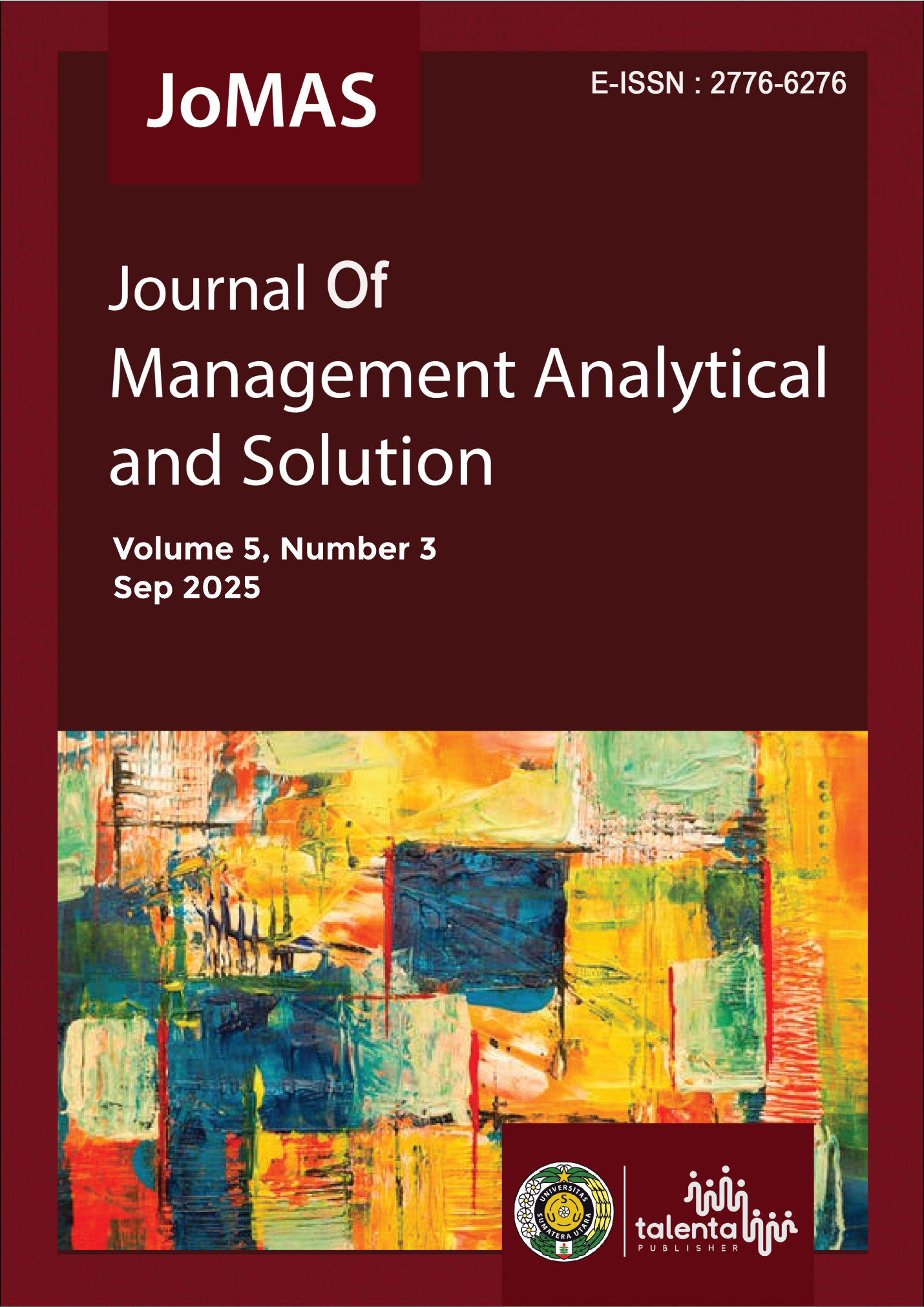The Mediating Role of Talent Management in the Influence between Knowledge Management and Employee Engagement on Employee Performance
DOI:
https://doi.org/10.32734/jomas.v5i3.22921Keywords:
Knowledge Management, Employee Engagement, Talent Management, Employee PerformanceAbstract
In today’s increasingly competitive business environment, companies are required to optimize the potential of human resources as a strategic asset. The rapid development of technology, dynamic market conditions, and high employee mobility drive organizations to adopt effective strategies in managing knowledge, employee engagement, and talent. Many companies face challenges such as the loss of competencies due to weak knowledge sharing and low employee engagement, which often lead to high turnover. This condition highlights that knowledge management, employee engagement, and talent management are critical factors in enhancing employee performance. This study aims to analyze the influence of knowledge management and employee engagement on employee performance with talent management as a mediating variable at PT Bank Sumut Head Office Medan. The research employed an associative design with a quantitative approach. Data were collected through questionnaires distributed to 83 respondents selected using purposive sampling from a population of 473 employees working across 18 divisions. The sample criteria included employyees who had worked for at least one year at the Bank Sumut Head Office. Data analysis was conducted using the Partial Least Squares Structural Equation Modeling (PLS-SEM) method. The results indicate that knowledge management and employee engagement have a significant effect on employee performance, both directly and indirectly, through talent management as a mediating variable. These findings suggest that the integrated implementation of knowledge management, employee engagement, and talent management can drive improvements in employee performance. Furthermore, this study provides practical implications for company management to strengthen sustainable human resource development strategies.
Downloads
Downloads
Published
Issue
Section
License
Copyright (c) 2025 Journal Of Management Analytical and Solution (JoMAS)

This work is licensed under a Creative Commons Attribution-ShareAlike 4.0 International License.















